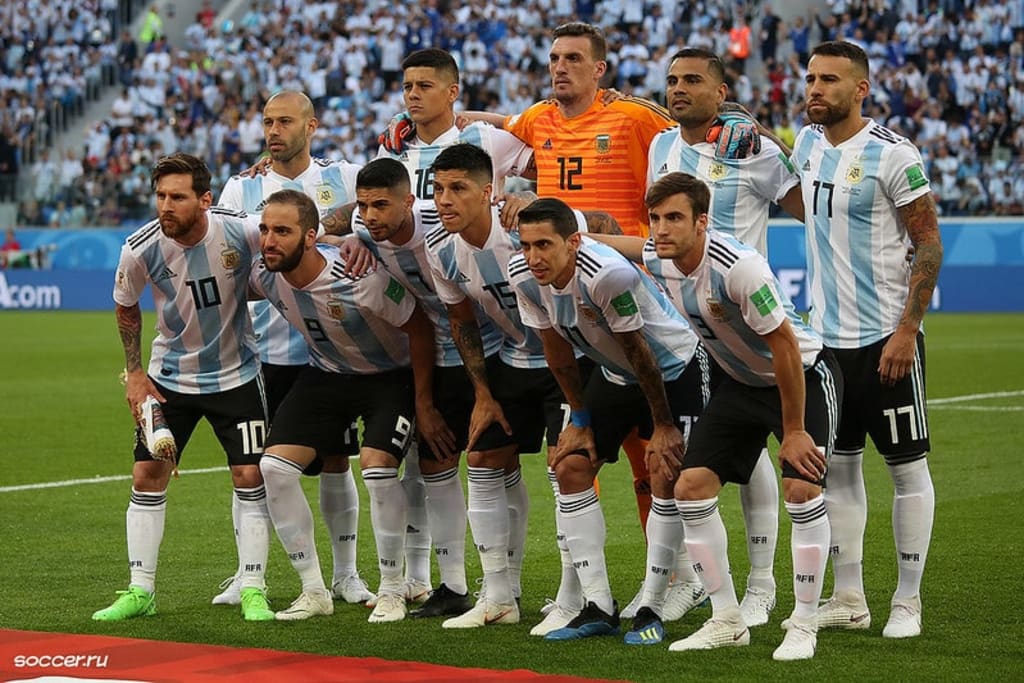53 Interesting Facts About Soccer
Soccer is an association game where a team of 11 players each play against each other. The sport is played with a spherical ball. Approximately 250 million people play the sport in over 200 countries, which makes it the world’s most popular sport. Let us explore more about the game of soccer with these facts about soccer players, balls, shoes, pitch, history, referee, football clubs, and much more.

In the article, we have also mentioned in tables FIFA World Cup prize money since 1982, FIFA World Cup top goalscorers, FIFA World Cup titles won by countries and the years they won it, most goals scored all time by players. Do check out the complete article.
Interesting facts about Soccer
1. The earliest game that resembled association football in history is the Chinese game cuju. The history of the sport dates back to the Han Dynasty (206 BC – 220 AD).
2. Early alternatives to association football balls include animal skins, skulls, pig bladders, and more.
3. The oldest professional football club in the world still in existence today is Sheffield FC. It was founded in 1857, and they have fluctuated in different tiers of play in England.
4. The country of Greenland has never been able to have a FIFA recognized team. That is because they can’t grow grass to create fields.
5. Referees were not used in official soccer matches until 1881. Up until then, people playing were responsible for making any calls.
6. The popularity of association football took off with colonialism, as the British took the game with them to all corners of the world.
7. The World Cup was designed to showcase the best professional football players in the world. At that point, the Olympics were only open to amateur athletes. Now, most of the countries will send their younger players to the Olympic games every four years.
8. The very first World Cup was a difficult tournament for European countries to get to in 1930. Hosted in Uruguay, only France, Romania, Belgium, and Yugoslavia were able to make the trip from Europe.
9. Uruguay is the only World Cup champion not to attempt to defend their title four years later. They refused to enter the 1934 World Cup hosted in Italy. It was considered a revenge snob towards Italy, as they refused to make the trip to Uruguay four years prior.
10. A match in the Congo in 1998 ended in tragedy as lightning killed an entire team. The opposition was left untouched.
11. Football made its television debut in 1937, featuring Arsenal in England. It was a practice match that involved players from the club.
12. The most fans to attend one football match took place in 1950 in Rio de Janeiro. A total of 199,854 people watch Brazil play Uruguay in the World Cup.
13. Lee Todd officially owns the record for fastest red card in association football history. He was playing for Cross Park Farm Celtic when he exclaimed an expletive two seconds into the match.
14. Norway might not be considered the best country for soccer success, but they are the only football team not to lose to Brazil in international competition. They have two wins and two draws against the powerhouse.
15. Another amazing fact about soccer is that Germany experienced a baby boom of around 30% roughly nine months after hosting the World Cup in 2006. Many other countries have noticed a spike as well after hosting (and winning countries), but not as big as this one.
16. There are over 5000 teams in the English football system, with different tiers depending on the caliber of play. Any team can move up to the highest league, the Barclays Premier League, by winning and moving up.
17. Field players end up running anywhere from 5 to 10 miles during the match. The large variance in distance depends on the speed of play, and what position a player plays.
18. Goalies first started wearing different colored jerseys in 1913, helping referees make proper calls during a match.
19. Andres Escobar scored an own goal for Columbia in the 1994 World Cup. Ten days later, he was killed by an angry fan for his mistake, making it one of the biggest scandals in World Cup history.
20. Over the last few World Cups, roughly half of the world’s population has tuned in to watch or listen.
21. The oldest player in World Cup history is Egyptian goalkeeper Essam El Hadary. He played sparingly for the club during group action.
22. Oleg Salenko of Russia holds the record for most goals scored in a single World Cup match. He was able to score 5 in Russia’s win over Cameron.
23. Stoppage time has long been a controversial and mysterious measurement of time in soccer matches. It is left up to referees, and it is usually anywhere from 1 to 5 minutes. It is never formally announced precisely how long stoppage time will be, as it’s up to the discretion of the referee.
24. Cristiano Ronaldo holds the distinction as the only known football player in professional history to score a goal in every single minute of a match. At some point in his career, he’s put the ball in the back of the net in minute 1, all the way to minute 90.
25. Qatar plans to make several changes to the FIFA World Cup in 2022. It’s not only the first World Cup held in the Middle East, but it is also being moved to the winter for cooler weather. They are even in the process of building a new city that will host the final.
26. Mexico City and Rio de Janeiro are the only two places to host a World Cup final multiple times.
27. The United States has dominated the Women’s World Cup since the inaugural 1991 tournament. They have four titles and one runner up out of the eight tournaments.
28. The most expensive transfer in soccer history came when Paris St. Germain paid FC Barcelona $263 million to obtain Neymar Jr.
29. Lionel Messi is the highest-paid association football player of all time. He regularly makes over $100 million a year these days, thanks to his lucrative contract with FC Barcelona, and his many endorsement deals.
30. The biggest recorded loss in football history was 149-0, and all the own goals were scored in protest.
31. Ricardo Olivera from Uruguay has the fastest recorded goals scored in football history. He was able to find the back of the net just 2.8 seconds into a match in 1998.
32. The number 10 is unofficially considered the kit number for the best player on a squad.
33. Modern association soccer is recognized as starting with the Cambridge Rules in 1848. This brought the first standardized version of rules together to create a more uniform way to play the sport.
34. Charles Goodyear created the first vulcanized rubber soccer ball in 1855. Over the next two decades, it became normalized with an inflatable rubber bladder and an official size and weight.
35. One of the most coveted trophies in all sports, the World Cup, was made of paper-mâché up until 1950. Heavy rain caused the need for a more durable trophy.
36. India declined to participate in the World Cup in 1950 because they weren’t allowed to play the game barefoot.
37. There is no uniform size for a soccer pitch. Going off of FIFA rules alone, length can be anywhere from 100 m to 110 m, while width can be 64 m to 75 m. Individual leagues around the world have even more laid back measurements.
38. A soccer field became known as a pitch due to the slope built into most fields. A soccer field can be sloped as much as 5° upwards from one end to the other, which is why teams will switch sides at the half.
39. Pele, one of many superstars with single word nicknames from Brazil, received his nickname due to having six toes on each foot when he was born. The word Pele means “six feet” in Brazilian Portuguese.
40. Pele is the only player to hoist the World Cup trophy three times. He won the 1958, 1962, and 1970 titles with Brazil.
41. The largest stadium used for soccer in the world is the Rungrado 1st of May stadium in North Korea. Located on Rungrad Island in Pyongyang, it holds about 114,000 people for soccer, with a capacity of around 150,000 for other events.
42. Only eight countries have won the World Cup: Uruguay, France, Italy, Brazil, Germany, Argentina, England, and Spain. Every winning country (and runner-up) is located in Europe or South America.
43. The name “soccer” is used mostly in the United States for association football. The name comes from the slang abbreviation of “association.”
44. The game of basketball was created by using a soccer ball and a peach basket to throw the ball into.
45. Four out of every five soccer balls are manufactured in Pakistan.
46. Did you know that until 1991, soccer was an illegal sport in Mississippi?
47. The Football Association penned the first official rules in 1863. Called “The Rules of Football”, the rules were framed by representatives of eleven different clubs that gathered to agree on common rules that would be accepted across the country.
8. The spherical shape of a soccer ball is an optical illusion created by the pattern; they are slightly oval. The most goals scored in soccer by a goalkeeper is Rogério Ceni playing for São Paulo Futebol Clube, in Brazil.
49. The national sport of Canada is soccer.
50. Soccer is one of the most lucrative sports in the world.
51. Famous Brazilian footballer Manoel Francisco dos Santos was born with several birth defects, including a deformed spine and a shorter right leg. At the time of his birth, his right leg was shorter by 6 centimeters than his left leg.
52. Brazil has hosted the world cup twice and they are the only country to have won five times. Interestingly, they did not win the cup when they hosted it. However, they are also the only country to have attended every single cup.
53. Ronaldo was one of the four men to win the FIFA World Player of the Year award thrice (or more) alongside Zinedine Zidane, Lionel Messi and Cristiano Ronaldo.
About the Creator
Sriram Nadarajan
I don't know what to write here.
Writing gives me a freedom that I do not find anywhere else!






Comments
There are no comments for this story
Be the first to respond and start the conversation.